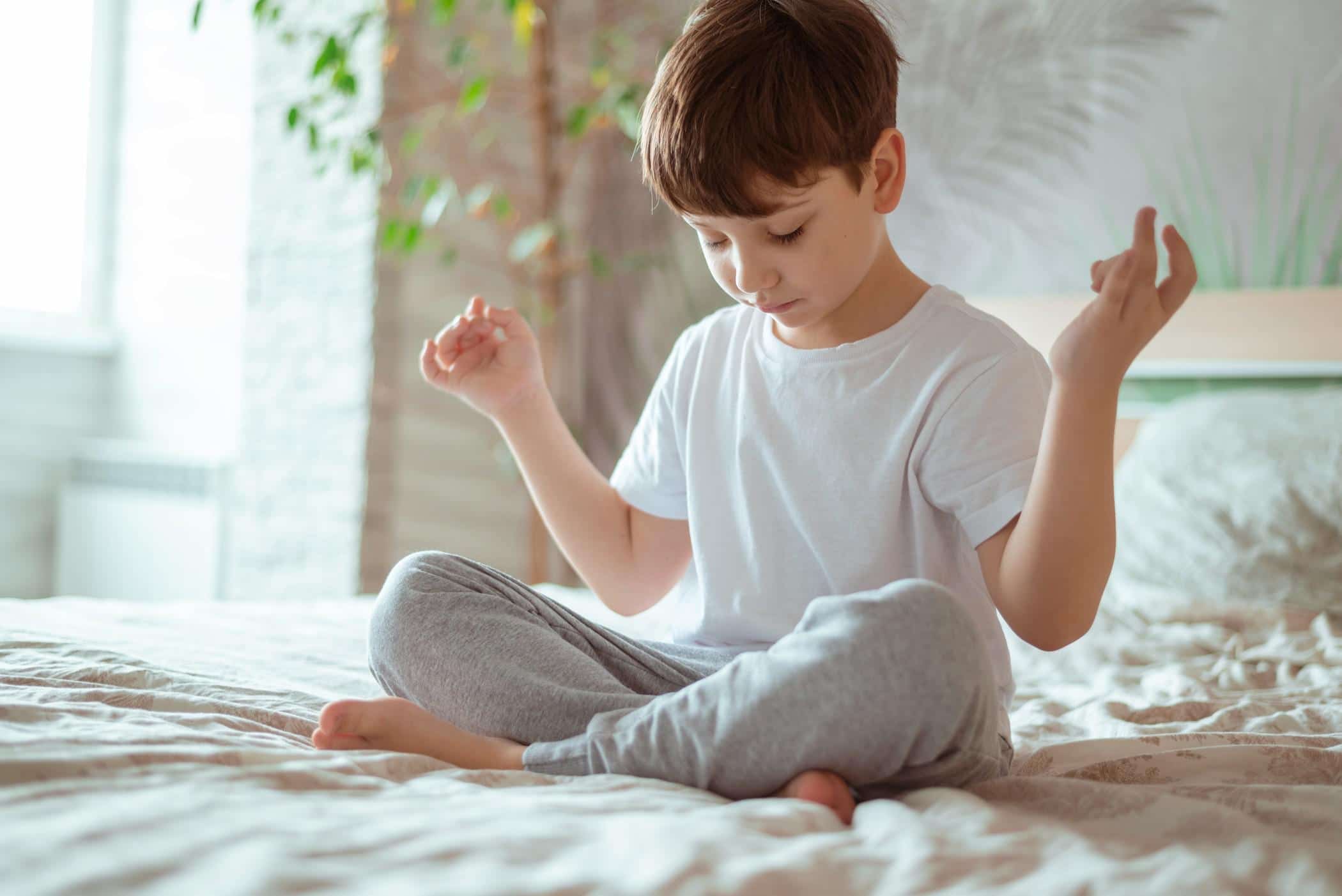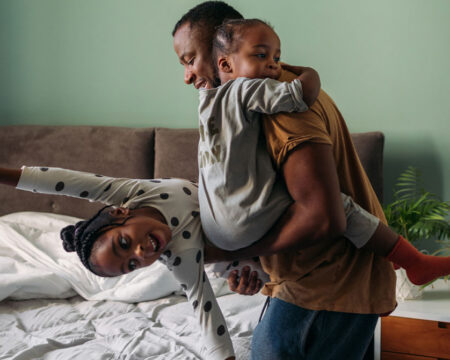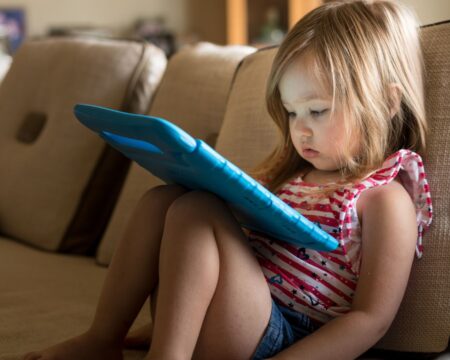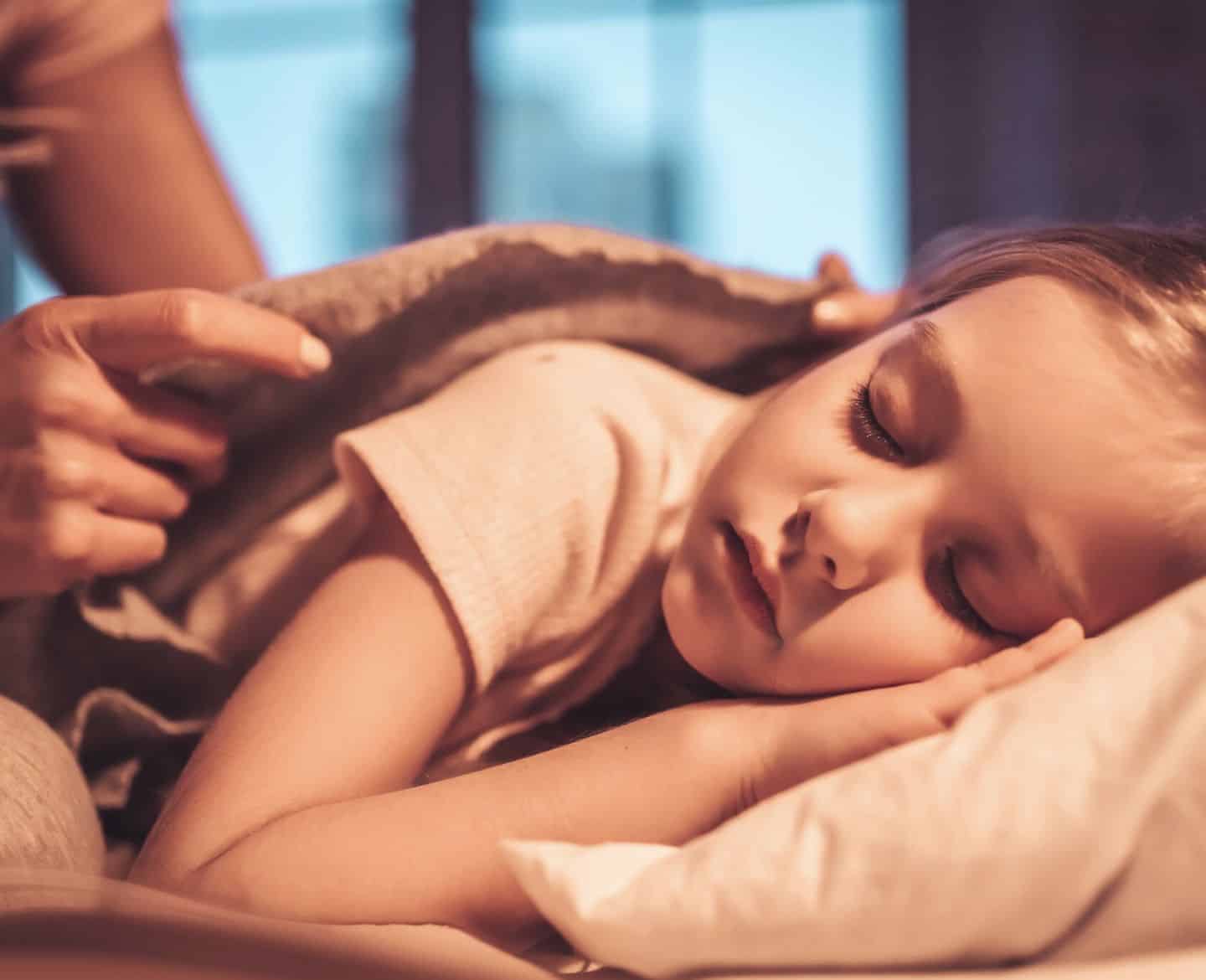Mindfulness training helps kids sleep longer, study reveals
Yoga and breathwork at school helped kids sleep an average of 74 more minutes per night.

Back-to-school season is upon us, and for many parents, that can mean dreaded repercussions on school-aged kids’ sleep. Any big change in routine can have ripple effects on bedtime—but starting back at school is especially fraught, as the onset of homework and after-school activities can push bedtime later, while school start times require an early wakeup—meaning less zzz’s all around.
But the back-to-school period is also a good time to implement new tools and routines, like mindfulness and deep breathing, that can help kids process significant schedule changes and potential stressors and hopefully minimize the impending negative effects on their sleep.
In fact, a new study from the Stanford University School of Medicine found that elementary school-aged kids who practiced mindfulness training slept an average of 74 extra minutes a night.
What the study shows
The research, recently published in the Journal of Clinical Sleep Medicine, was focused on 115 kids in third grade and fifth grade, ages 8 to 11, with 58 children participating in a mindfulness curriculum twice a week that focused on yoga and breathwork, and 57 children participating in a standard physical education program.
Over the two-year study period, researchers used brain scans and measured the kids’ perceived social stress to get a baseline of their sleep and stress levels before, during and after the study.
What they found was impressive: Children who received the mindfulness training gained an average of 74 minutes of total sleep and 24 minutes of rapid eye movement (REM) sleep per night during the two years analyzed. Sleep duration improved within the first three months of starting the program.
In contrast, kids who participated in the physical education program experienced a decrease of 64 minutes per night of total sleep, and saw no changes in REM sleep.
“[Children who received the mindfulness curriculum] gained almost half an hour of REM sleep,” said Ruth O’Hara, PhD, a sleep expert and professor of psychiatry and behavioral sciences at Stanford and the study’s senior author in a press release. “That’s really quite striking. There is theoretical, animal and human evidence to suggest it’s a very important phase of sleep for neuronal development and for the development of cognitive and emotional function.”
Support for at-risk kids
Sleep issues can plague kids from all backgrounds, but the kids who participated in the study lived in low-income communities with high rates of social stressors such as crime, violence, food insecurity and unstable housing—all significant contributing factors to poor sleep.
“To fall asleep you have to relax, but [the kids we studied] have a hard time letting their experiences go,” the study’s principal investigator, Victor Carrion, MD, the John A. Turner, MD, Endowed Professor for Child and Adolescent Psychiatry told Stanford Medicine. “They don’t feel safe and may have nightmares and fears at night.”
But twice a week for two years, yoga instructors and the kids’ school teachers taught the students what stress is, how to bring their attention to the present, deep breathing exercises and yoga-based movement.
“Children who reported higher curriculum engagement [e.g., using the breathing exercises at home] experienced larger changes in sleep architecture and perceived social stress,” reported the study authors. Thanks to having tools to employ to help them relax, the kids were able to fall asleep faster and sleep for longer.
Stress and sleep
One of the unexpected results from the study was an increase in reported perceived stress—meaning that mindfulness training increased the students’ awareness of their own stress, even though it also gave them ways to reduce their vulnerability to that stress, the researchers noted.
Being more aware of their stress also helped kids better manage that stress—and they still slept better.
While plenty of studies have shown the benefits of mindfulness on stress reduction in both kids and adults, this research is unique in that it shows how stress-reduction benefits carry over to bedtime and sleep quality.
And while the study purposefully didn’t focus on sleep hygiene or bedtime routines, the mindfulness instruction empowered kids to recognize their own stress and gave them the necessary tools to manage it, with trickle-down effects on their sleeping habits.
How to help kids manage stress
Here’s how to help your kiddos learn to recognize their stress and get more sleep—just in time for back-to-school:
- Talk about what stress is with your kids and how they can recognize signs of stress.
- Utilize the back-to-school period to implement new bedtime routines and set firm schedules to ensure consistency.
- Help kids put a name to their feelings to better understand their emotions.
- Embrace mindfulness tools like breathing exercises, yoga poses, progressive relaxation and guided meditations, especially as part of bedtime routines and during times of increased stress.
Sources:
Chick CF, Singh A, Anker LA, Buck C, Kawai M, Gould C, Cotto I, Schneider L, Linkovski O, Karna R, Pirog S. A school-based health and mindfulness curriculum improves children’s objectively measured sleep: a prospective observational cohort study. Journal of Clinical Sleep Medicine. 2021 Jul 6:jcsm-9508. doi:10.5664/jcsm.9508


